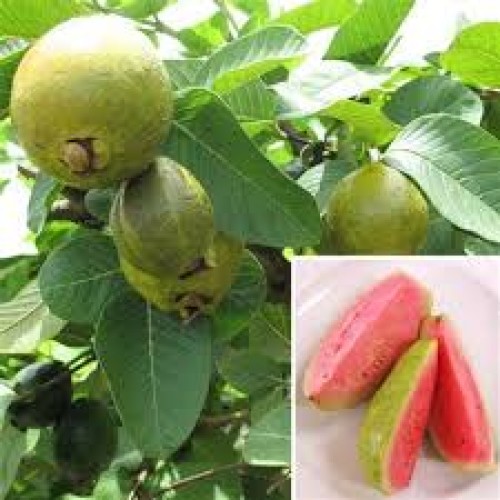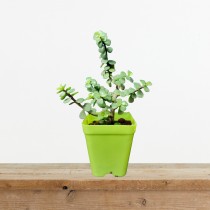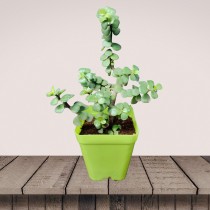off
-
Sold
-

out
Thai Guava Plant: Care, Uses & Advantages
The Thai Guava Plant is a popular tropical fruit tree known for its large, crisp, and mildly sweet fruits. Unlike regular guavas, Thai guavas are often eaten when firm and are commonly enjoyed with chili-salt or sugar dips. Highly valued in Southeast Asia and now grown worldwide, this guava variety is both a delicious treat and a rewarding plant to grow.
Care of the Thai Guava Plant
Thai guava plants are hardy, low-maintenance, and adaptable to many environments. Here's how to care for them:
- Climate: Thrives in warm, tropical to subtropical climates. Protect from frost or extreme cold.
- Sunlight: Requires full sun—at least 6 to 8 hours daily—for healthy growth and fruiting.
- Soil: Prefers well-drained, loamy or sandy soil. Slightly acidic to neutral pH (5.5 to 7.0) is ideal.
- Watering: Water regularly but allow the topsoil to dry between sessions. Avoid waterlogging.
- Fertilizer: Use organic compost or a balanced NPK fertilizer monthly during the growing season.
- Pruning: Prune annually to shape the plant, remove dead wood, and encourage more fruiting branches.
- Pest Management: Watch for fruit flies and aphids. Use neem oil or organic insecticides if needed.
Advantages of the Thai Guava Plant
- Rich in Nutrients: High in Vitamin C, antioxidants, and dietary fiber—boosts immunity and digestion.
- Crisp Texture: Thai guavas are enjoyed for their firm, crunchy texture, unlike soft-ripe varieties.
- Low in Sugar: Naturally low in sugar, making them ideal for diabetics and health-conscious individuals.
- Fast Growing: These guavas mature quickly and start fruiting within 2–3 years under ideal conditions.
- Disease Resistant: Known for resilience against common pests and diseases compared to other fruit trees.
- Long Harvest Period: Thai guavas can be harvested multiple times a year with proper care.
Uses of Thai Guava
- Fresh Consumption: Typically eaten raw while still firm—dipped in salt, chili, or sugar mixtures.
- Culinary Use: Used in salads, pickles, and desserts. Can also be juiced or blended into smoothies.
- Medicinal Use: Leaves are used in herbal remedies for digestive health and wound healing.
- Cosmetics: The antioxidant-rich extracts are used in skincare for anti-aging and brightening effects.
- Ornamental: Compact and attractive, it also serves as a decorative fruit tree in home gardens and patios.
Conclusion
The Thai Guava plant is a nutritious, low-maintenance fruit tree ideal for both small gardens and commercial cultivation. Its crisp texture, subtle sweetness, and rich nutrient profile make it a popular choice in many cuisines and health circles. With proper care, this resilient plant rewards growers with abundant harvests and multiple uses—from food to medicine to cosmetics.

